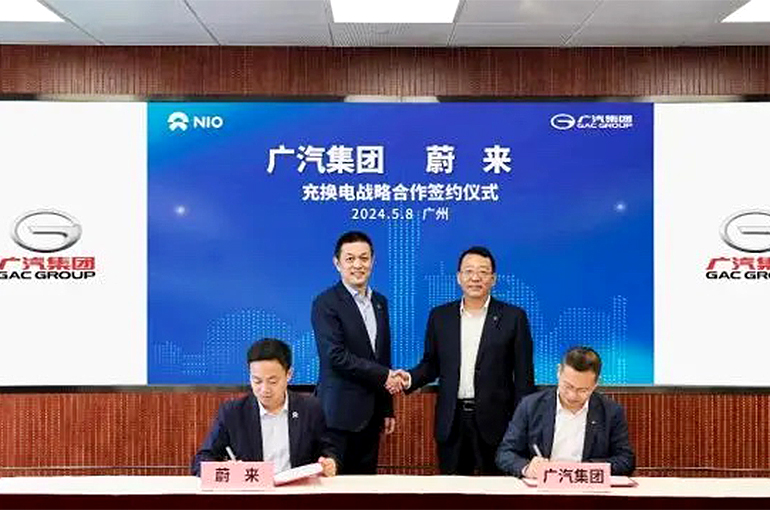 GAC Is Sixth Chinese Carmaker to Join Nio’s Battery Charging, Swapping Alliance
GAC Is Sixth Chinese Carmaker to Join Nio’s Battery Charging, Swapping Alliance(Yicai) May 9 -- Guangzhou Automobile Group has become the sixth Chinese carmaker to join Nio’s alliance on electric vehicle battery charging and swapping. The group already includes vehicle manufacturers such as Changan Automobile and energy firms like Sinopec.
GAC and the new energy vehicle startup signed a deal yesterday to work together on creating unified battery standards, launching EVs that comply with those standards, developing cars with battery swap capabilities and swap stations compatible with their EVs, and moving ahead with the roll-out of such stations, according to a press release.
The alliance already includes Changan, Geely Holding Group, Chery Automobile, JAC Group, and Lotus as well as China Petroleum and Chemical, as Sinopec is officially known, China National Offshore Oil, Shell, State Grid Corporation of China, China Southern Power Grid, Anhui Wenergy, and Zhongan Energy.
It is intended to create a standardized and unified power infrastructure network along with a fast-developing battery swapping ecosystem and more efficient and convenient recharging experiences.
“As a pioneer in the NEV industry, GAC boasts a large user base and rich experience in the construction and operations of charging and swapping infrastructure,” said William Li, Nio’s founder, chairman, and chief executive officer.
“The cooperation will amplify the two companies’ respective strengths in technology and operations and push forward the unification of battery standards and operational and management systems so as to make swapping a more approachable solution and provide users with experiences as hassle-free as refueling.”
Based on their charging facilities, the pair plan to make charging easier for EV drivers by achieving dynamic data interconnectivity by the end of this month. That will enable users to search for and navigate to chargers, as well as start and pay for charging sessions through the firms’ apps, mini-programs, and power maps on center displays.
“With the growing NEV population, battery swapping will unleash unlimited market opportunities, especially in cities,” said GAC President Feng Xingya. “The strategic cooperation agreement that we signed today is also a foundation and guidance for our future cooperation.
“With it as a starting point, we hope to build more battery swap stations with which our GAC Aion users will have a better swapping experience,” he added.
Nio operates the most number of charging piles and battery swap stations in China. As of the end of April, it had 2,454 swap stations and 22,138 charging piles in the country.
By opening its battery swapping network to other companies, the Shanghai-based NEV maker can reduce its operating costs, according to industry analysts. Last year, Nio Senior Vice President Shen Fei said it needs 50 to 60 battery swaps a day to break even and is now at around 35 to 36.
Editor: Futura Costaglione